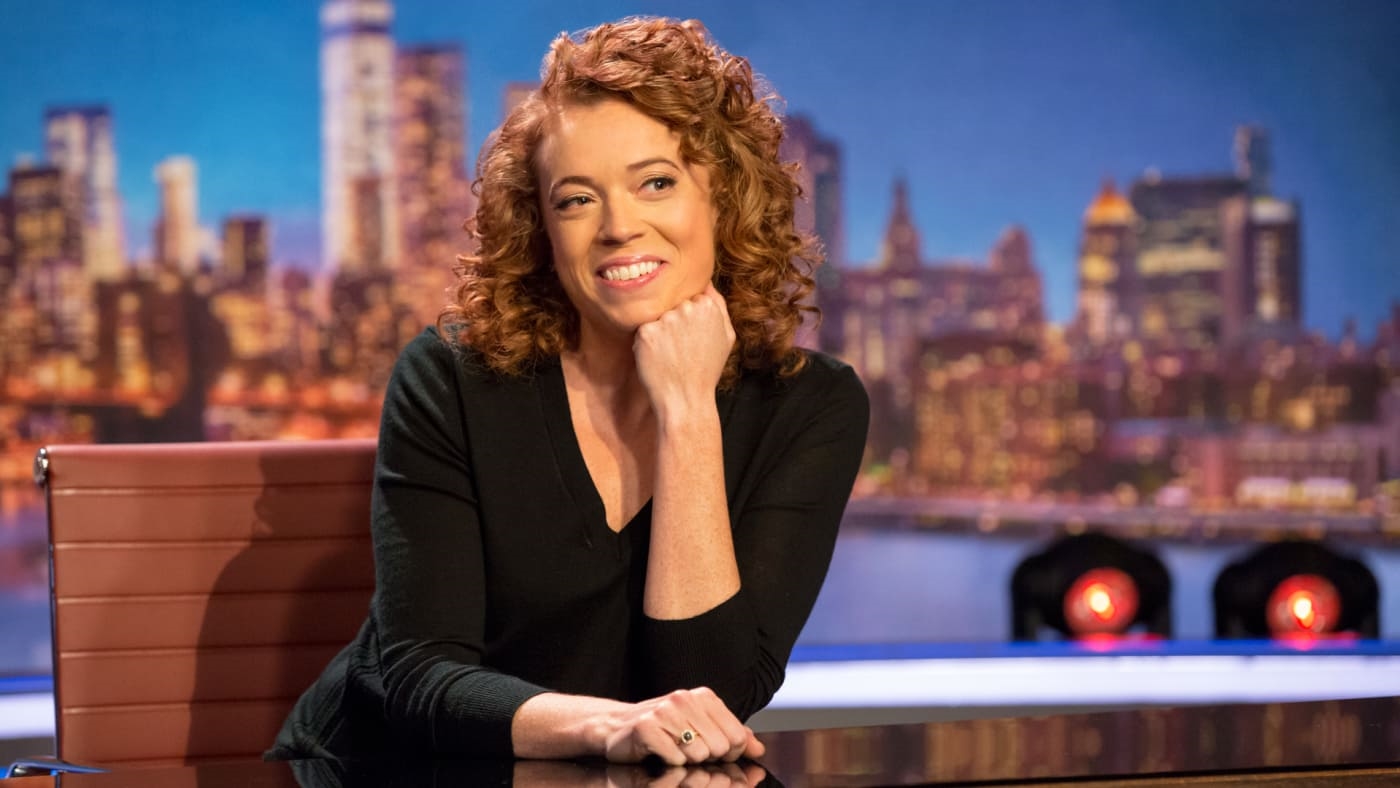What Netflix needs to do to make a successful late-night show
Netflix announced late Friday that it would not be making any more episodes of The Break with Michelle Wolf and The Joel McHale Show, its two “late-night” style series. With Wolf and McHale joining Chelsea Handler as failed Netflix talk-show hosts, I have to wonder if Netflix will ever be able to create a winning version of this hoariest of television formats.
The late-night talk show was pioneered by Steve Allen in the early days of television, and the spirit was anarchic. Man-on-the-street interviews, silly stunts–the underlying vibe was that the suits were asleep and the weirdos had taken control of the network (in this case, NBC).
This same attitude has defined almost every successive innovation in late night. David Letterman brought an ironic flourish to some of the same bits Allen had done three decades earlier, and he took it further with bits and interviews that punctured the pretensions that had arisen in the form in the days of Johnny Carson and his comforting “go to bed with Johnny” manner. Arsenio Hall, particularly in his 13-week proving run as the replacement for Joan Rivers on the fledgling Fox network’s late-night show, brought a cavalier attitude that was infectious. The show was already canceled, so why not let it rip?
On cable TV, young networks used late-night shows as cheap filler that also happened to draw young viewers who could not believe what they were seeing on television. In the 1980s, USA Network’s Night Flight and even ESPN’s SportsCenter would fearlessly make fun of TV conventions, drawing in viewers who shared the same sensibility and were in on the joke. Network TV sports anchors were ridiculous! Movie-of-the-week hosts were also ridiculous!
As time went on, the more surreal, the better: You can follow this line from Comedy Channel’s Night After Night (which featured an “Audience of One” and Nick Bakay as a fearless sidekick who subverted the Carsonian standard) to E!’s Talk Soup (first hosted by Greg Kinnear smirking his way through a lineup of outrageous daytime clips) to Conan O’Brien (bizarre character bits like the FedEx Pope, a guy with a shipping box on his head pretending to be the pontiff) to MTV’s Jon Stewart Show (a younger, more fearless Stewart) and Squirt TV (a 15 year-old hosting a talk show out of his bedroom) to Cartoon Network’s Space Ghost: Coast to Coast (a forgotten Hanna Barbera character hosts an 11-minute talk show) to IFC’s Comedy Bang Bang (even more absurdist, longer-form character bits).
These shows share a few other essential components to breaking through in late night: They looked slapdash–small, even claustrophobic; the low- production value was innately part of their charm and reinforced the idea among viewers that this was being beamed just to you. They also featured young, unknown talent who had the freedom to fail on a very low budget. Finally, they almost always made fun of the network they were on in some manner or fashion. This subversive element should not be underestimated.
So then you have Netflix–established talent on a splashy set, doing more or less the same stuff that’s been the formula for late-night shows for more than 60 years. Michelle Wolf is funny, but her show mostly played as a weekly topical standup special with a couple of taped bits thrown in. Netflix likes to think of itself as a mold breaker, but Wolf still came out on a stage that was set up exactly as talk shows have done forever–music to her left, seating to her right. In what would be her last episode, she did an amusing set piece about the conventions of true-crime documentaries, which certainly implicated Netflix but didn’t go far enough in biting the hand that fed it.
The Joel McHale Show was frequently funny (and did feel a bit intimate with its small stage and audience), but it’s weird to see him making fun of trashy cable shows like VH-1’s Basketball Wives when he could–and I would argue, should–be making fun of Netflix originals. It’s also odd watching McHale, who should’ve left this schtick behind after he became a sitcom star, throw spitballs at dumb people on MTV shows meant for viewers more than half his age. Even if you loved McHale’s sarcasm in the mid-2000s, it feels unseemly for the busy actor to be punching down and even more unsporting of Netflix to lampoon the networks it’s destroying.
There are several ways Netflix could try to find its own comedic talk-show identity. It could do away with the idea of a show entirely and just produce the kind of clips that hosts like James Corden have ridden to great success. Post a new clip or two on the app at midnight and re-promote them every morning try to form a habit the way YouTube has become the home for the most shareable traditional late-night segments. Netflix could get weird the way I suggest above, finding a young performer who won’t be afraid to skewer Netflix itself, giving them none of the traditional trappings of late night, and seeing what they come up with. If Netflix really wanted to get crazy, it’d hand a show over to a performer with a conservative bent. (Yes, the few attempts to create a conservative late-night show have been a miserable failure, with the possible exception of Fox News’ Red Eye, which was exactly the kind of strange cocktail you’d make at three in the morning. But that’s precisely why it’d be the sort of daring that has been absent from Netflix’s late-night efforts.) It could also go all-in on more bits like its 2017 April Fools joke, which at least had the benefit of having a can’t-take-your-eyes-off-it quality that has certainly been missing in shows like Wolf’s and McHale’s. It could do all of these things: It’s Netflix after all.
Next up to try to crack this code is another Daily Show alum, Hasan Minhaj. Good luck! We’re rooting for you.
Fast Company , Read Full Story
(21)



